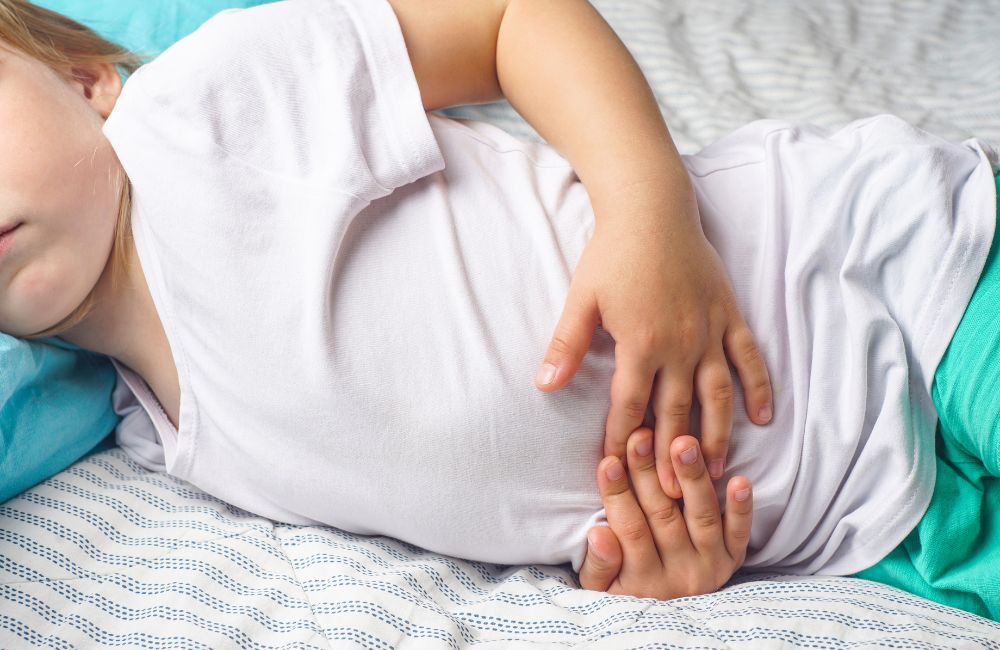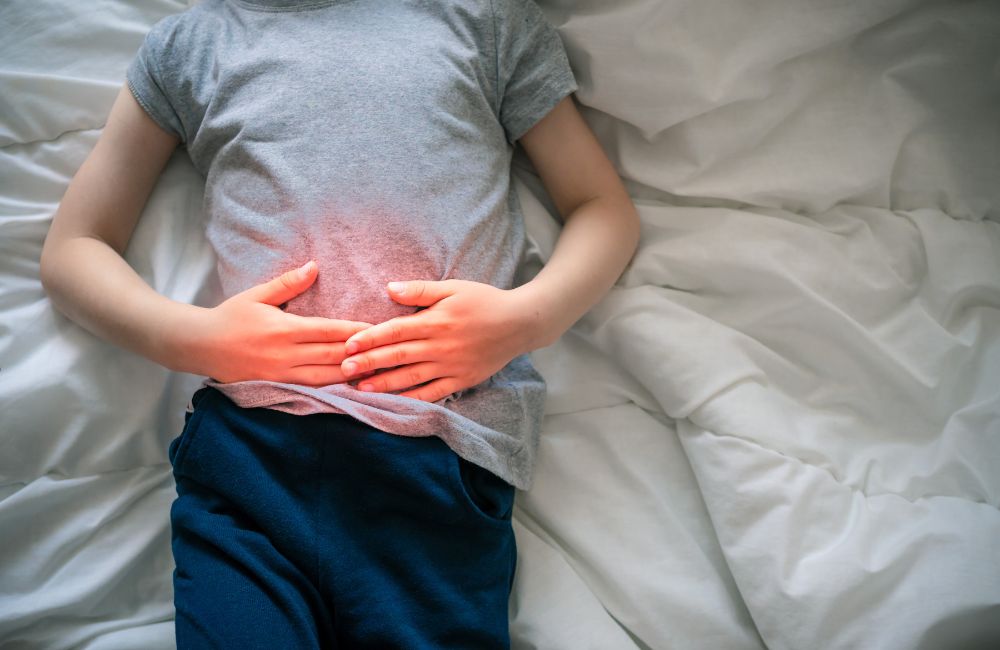
Abdominal pain in children is a common issue that can cause significant distress for both the child and their parents. Understanding how to manage this pain at home with effective remedies and knowing when to seek professional medical help are crucial. We will provide detailed information on home remedies for children’s abdominal pain and the appropriate times to contact a primary care doctor in Bridgeport, CT.
Key Takeaways
What is Abdominal Pain in Children
9 Home Remedies for Children’s Abdominal Pain
1. Warm Compress
2. Hydration
3. Ginger Tea
4. Peppermint
5. Chamomile Tea
6. Probiotics
7. Yogurt
8. BRAT Diet (Bananas, Rice, Applesauce, Toast)
9. Massage
When to Call a Primary Care Doctor in Bridgeport, CT
Preventative Measures
Frequently Asked Questions
Get Professional Care for Your Child’s Health at Docs Primary Care – Bridgeport!
Abdominal pain can manifest in children for numerous reasons. Common causes include:
When your child experiences abdominal pain, several effective home remedies can provide relief and comfort before considering a visit to a primary care doctor in Bridgeport, CT.

While home remedies can be effective, there are times when it’s crucial to seek medical attention. Knowing when to call a primary care doctor in Bridgeport, CT, can ensure your child receives the appropriate care.

Preventing abdominal pain can save your child from discomfort and reduce the need for medical interventions. Here are some tips to help prevent future occurrences of abdominal pain:
Ensure your child eats a well-balanced diet rich in fruits, vegetables, whole grains, and lean proteins. Avoid processed foods and excessive sugary snacks. Adequate fiber intake is essential for preventing constipation, a common cause of abdominal pain. Encourage your child to eat smaller, more frequent meals to prevent overeating and indigestion.
Encourage your child to drink plenty of water throughout the day. Proper hydration is key to maintaining digestive health. Make water readily available and encourage regular drinking, especially during and after physical activities.
Regular exercise can help keep the digestive system functioning properly. Encourage your child to engage in physical activities they enjoy. Activities like walking, biking, swimming, and playing sports can promote healthy digestion and overall well-being.
Stress can contribute to abdominal pain. Teach your child relaxation techniques such as deep breathing, meditation, or engaging in hobbies they enjoy. Provide a supportive environment where your child feels comfortable expressing their feelings and concerns.
Lying on your back with a pillow under your knees or on your left side with your knees bent can help relieve stomach pain by reducing pressure on the abdomen. This position can also improve digestion and reduce discomfort. Additionally, practicing deep breathing while in these positions can further alleviate pain.
Yes, a heating pad can help relax the abdominal muscles and alleviate cramps and pain. Use it for 15-20 minutes, ensuring it’s not too hot to avoid burns. Applying heat can also increase blood flow to the area, promoting healing. It’s a simple and effective way to provide quick relief at home.
To expel gas quickly, try walking, massaging your abdomen in a clockwise direction, or doing gentle exercises like knee-to-chest stretches to help move gas through the digestive tract. Drinking warm water or herbal teas can also help. Avoiding gas-producing foods and practicing these techniques regularly can prevent gas build-up.
To relieve bloating quickly, drink water, avoid carbonated drinks, eat slowly, and try over-the-counter remedies like simethicone. Gentle exercises and a warm compress can also help. Reducing salt intake and avoiding high-fiber foods temporarily can further decrease bloating. Keeping a food diary can help identify and avoid bloating triggers in the future.
Yes, drinking hot water can help relieve gas by relaxing the digestive system and aiding in the movement of gas through the intestines. Warm water can also help break down food more efficiently. Incorporating warm water into your daily routine can improve overall digestive health.

If your child is experiencing persistent or severe abdominal pain, seeking professional medical advice is important. Our experienced team at Docs Primary Care – Bridgeport can provide your child with comprehensive and compassionate care. Ensure your child’s well-being by scheduling an appointment with Docs Primary Care – Bridgeport today.
Don’t wait—get the expert help your child needs to stay healthy and happy. Visit us today!



During this surge in COVID-19 cases, our primary focus is meeting the high demand for tests, and we are seeing higher than usual wait times. This means we are unable to answer most phone calls. Please know that our teams are working very hard during this time to care for as many patients as safely as possible. Please click the button below for answers to common questions. We appreciate your understanding.